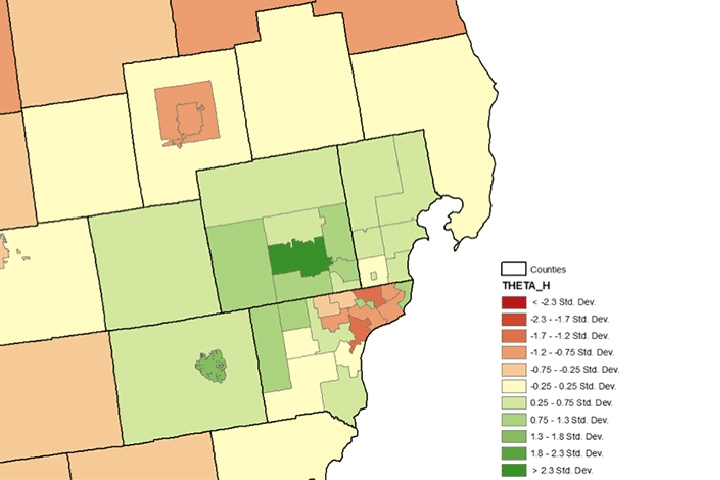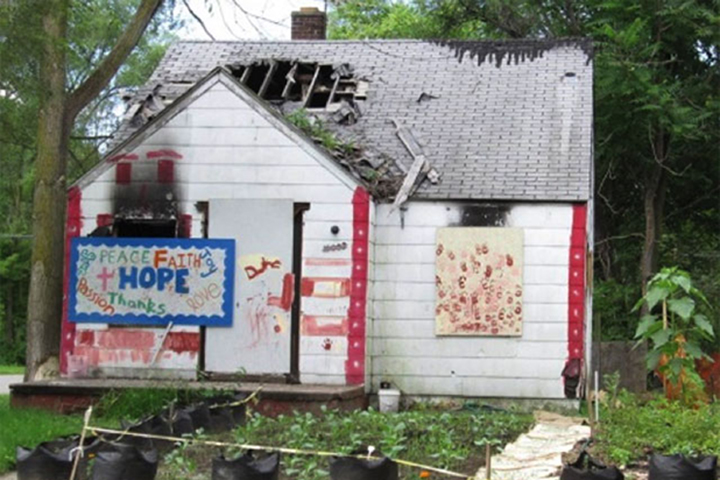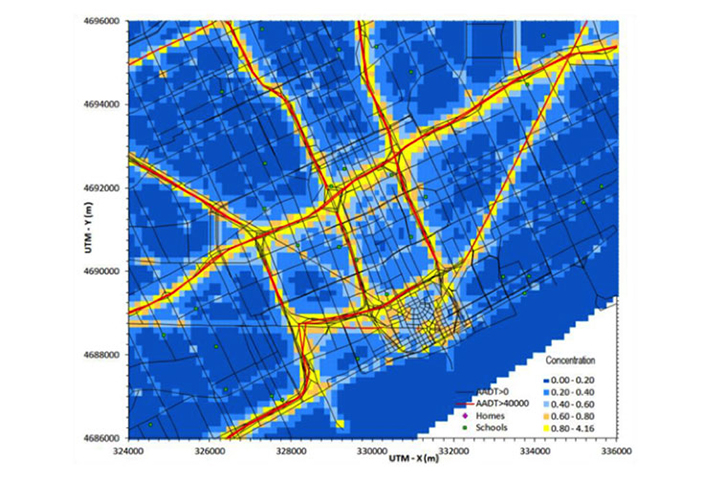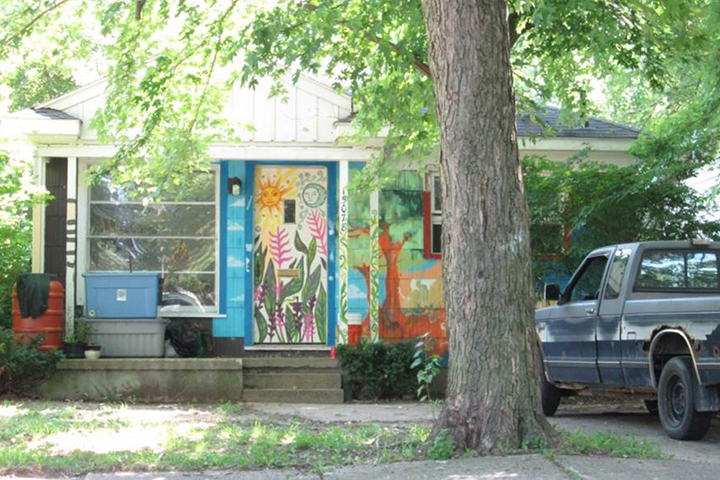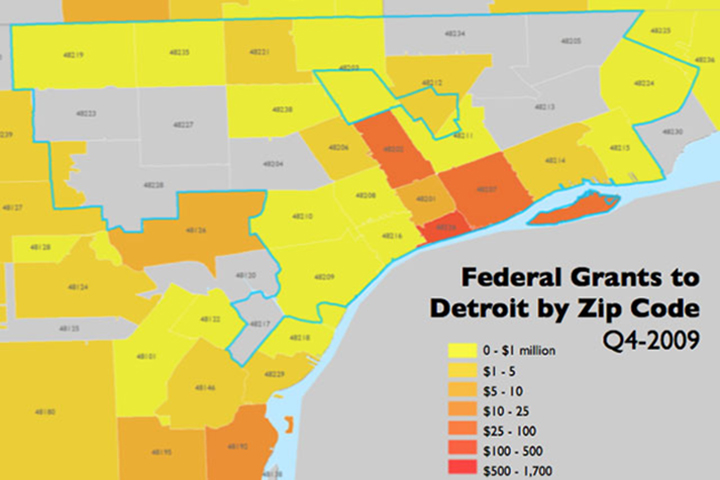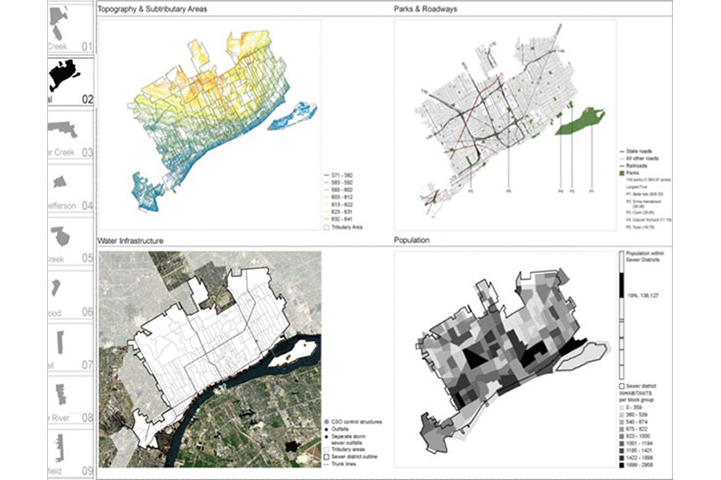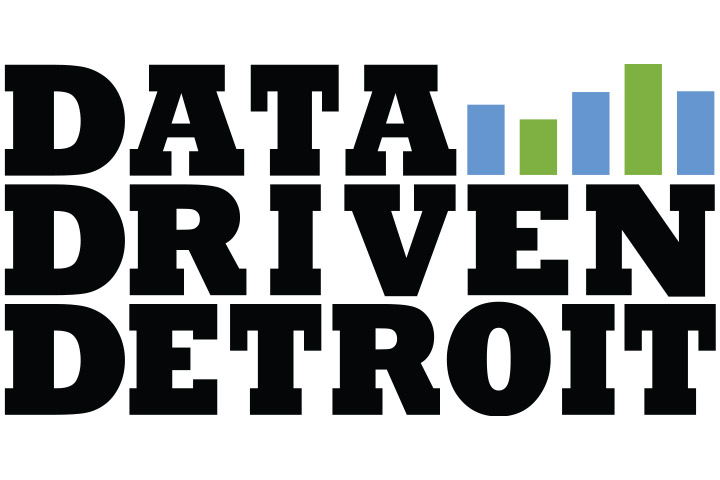
Project Summary
With approximately 30% vacant land within the City of Detroit and an infrastructure built to support a population of nearly two million in the 1950s compared to less than 700,000 today, numerous sustainable redevelopment ideas have been proposed for the City.
To support these efforts, the Graham Institute partnered with Data Driven Detroit (D3) to initiate the Detroit Sustainability Indicators Project in 2011. D3 is a small business that provides accessible, high-quality information and analysis to drive decision-making that strengthens communities in Southeast Michigan.
In partnership with D3, the Graham Institute funded six U-M faculty-led research projects to develop data, tools, and analysis to help decision makers in Detroit consider sustainability in their planning efforts. The projects addressed economic, environmental, and social aspects of sustainability on topics including: Vacant Land, Stormwater Management, Air Pollution, Federal Investment Trends, and Measuring Urban Sustainability.
| See: Project Factsheet |
Key Outcomes
Data Access
Ensuring the data generated from the project would be publicly accessible was one of the IA’s primary goals. The final spatial (GIS) data products are available through D3, and the data will be integrated into D3’s broader database as appropriate to allow users to compare multiple data sets simultaneously.
Findings and Recommendations
In addition to the data, each team produced a summary report including a description of the project, findings, and recommendations for data use and potential policy options for decision makers using the data.
New Opportunities & Engagement
Building on the project's success, the Graham Institute secured additional funding from the former U-M Center for Advancing Research and Solutions for Society (CARSS) to support a three-year series of workshops led by D3 to facilitate the use of sustainability data in Detroit.
These hands-on workshops introduced stakeholders and decision-makers from city government, neighborhood groups, environmental justice organizations, and foundations to the available information and tools. In addition to building capacity for data-driven decision-making, the workshops provided an opportunity for cross-sectoral conversations about Detroit’s sustainability challenges and opportunities.
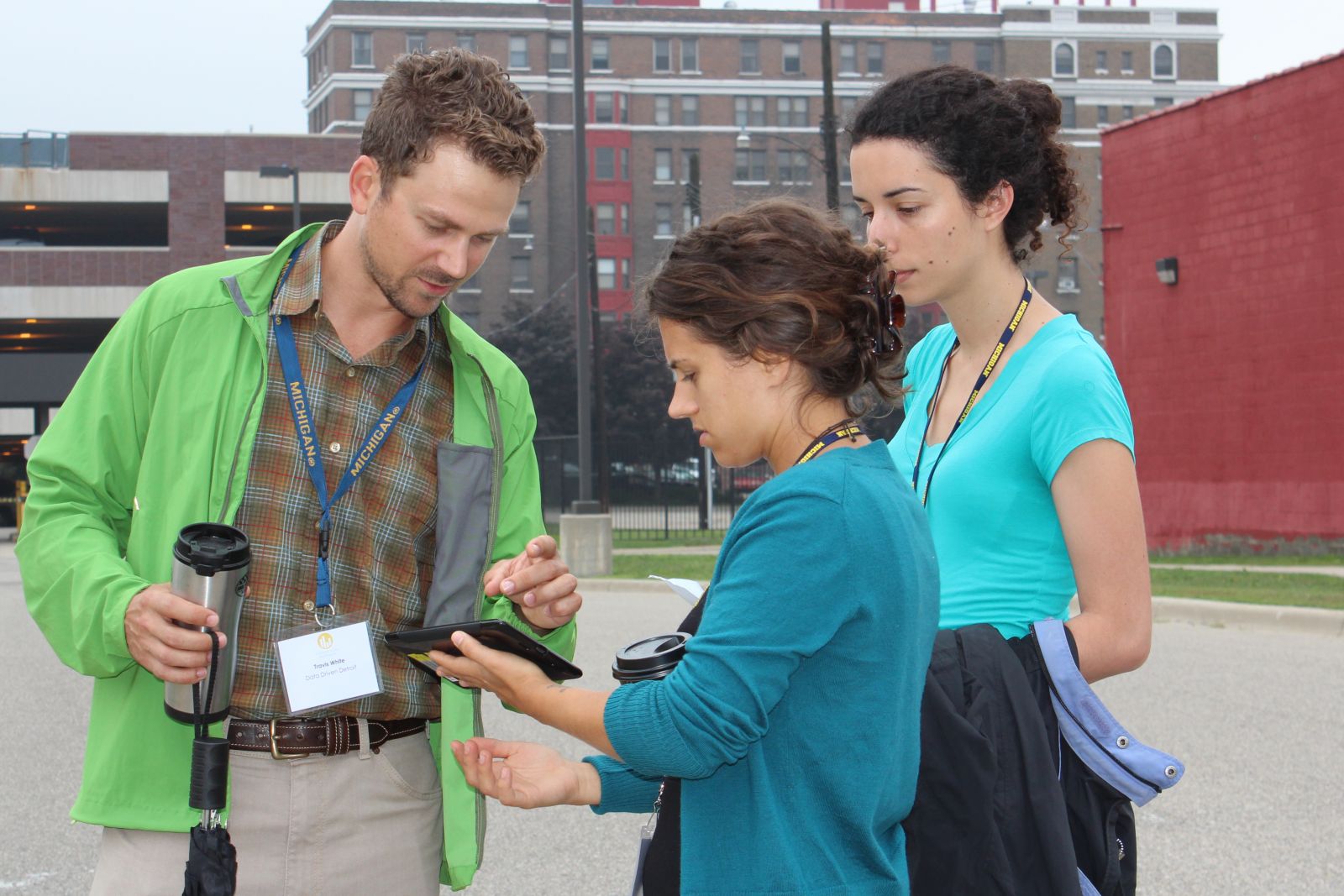
Project Teams
Measuring the Greenness of Cities: A New Methodology for an Urban Sustainability Index
David Bieri - Architecture & Urban Planning
Documenting Care and Commitment to Place in CDAD's "Urban Homesteads" and "Naturescapes"
Margaret Dewar - Architecture & Urban Planning
Eric Dueweke - Architecture & Urban Planning
Regional, Spatial, and Temporal Mapping of Air Pollution in Detroit
Stuart Batterman - School of Public Health
Joan Nassauer - SNRE
Eric Dueweke - Architecture & Urban Planning
Federal Investments and Economic Disparity in Detroit
Brian Min - Political Science, LSA
Jowei Chen - Political Science, LSA
Jen Maigret - Architecture & Urban Planning
María Arquero de Alarcón - Architecture & Urban Planning
Nicole Scholtz - University Library
Resources
- U-M Helps Non-Profit Organizations Make a Difference in Detroit News update about Graham Institute partnerships with non-profit organizations in Detroit
- 2014 American Institute of Architects Michigan Honor Award, 2012-2013 Faculty Design Award, and 2013 Boston Society of Architects Citation. Jen Maigret and María Arquero de Alarcón win for "Liquid Planning Detroit" Project
- Liquid Planning Detroit Project page on Jen Maigret and María Arquero de Alarcón's MAde Studio website
- Are Green Cities Nice Places to Live? Examining the Link between Urban Sustainability and Quality of Life David Bieri's Michigan Journal of Sustainability article which utilizes the index developed through this IA.
- Engage, Connect, Impact: URC Projects Contribute to Detroit's Revitalization Article about how University Research Corridor projects contribute to Detroit's revitalization
- Finding Potential in Vacant Lots New York Times article citing Prof. Joan Nassauer
For more information, please contact Maggie Allan at (734) 763-0749 or [email protected].
The Graham Sustainability Institute awarded a total of $270,000 to 7 project teams in 2011.
